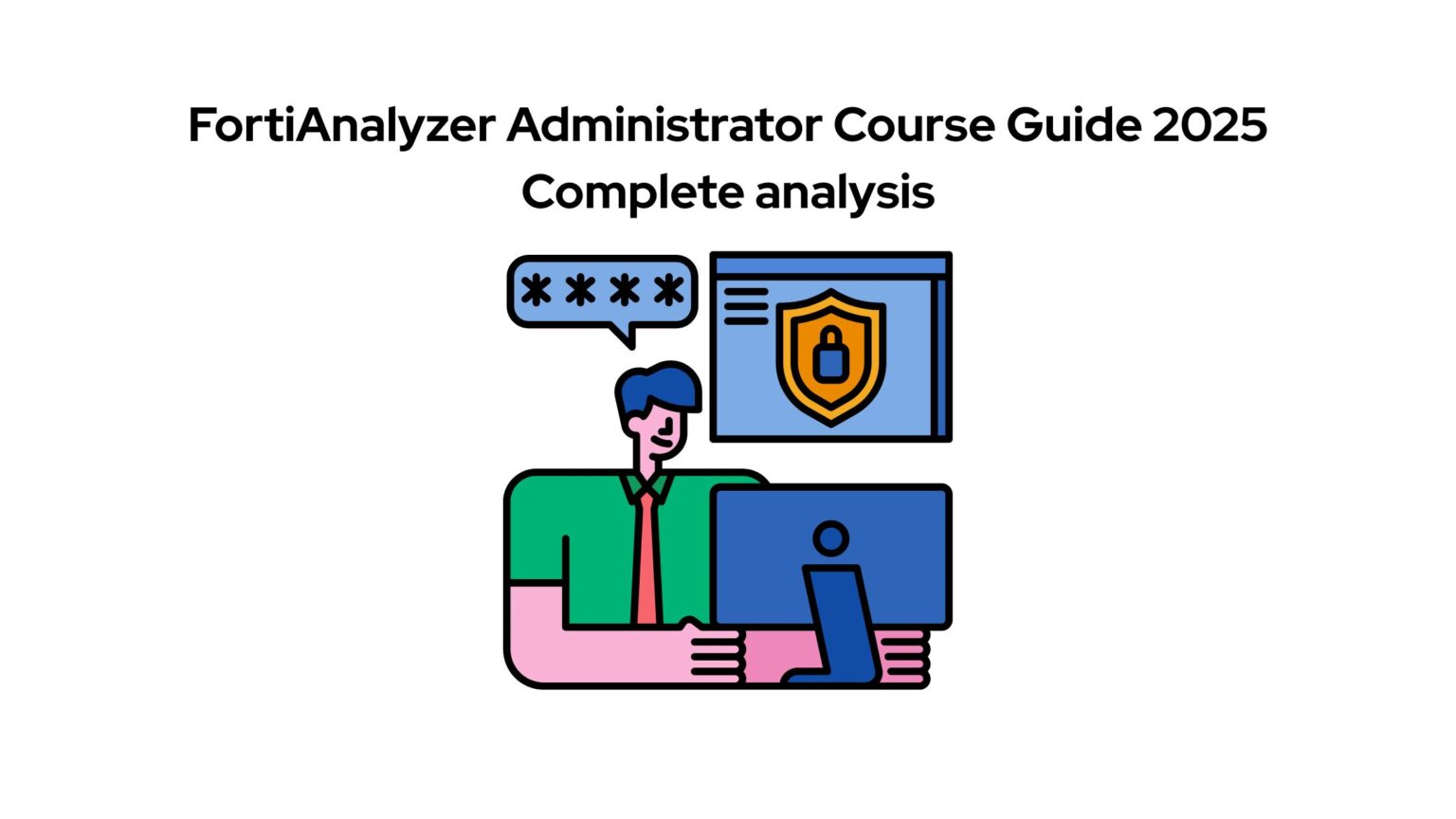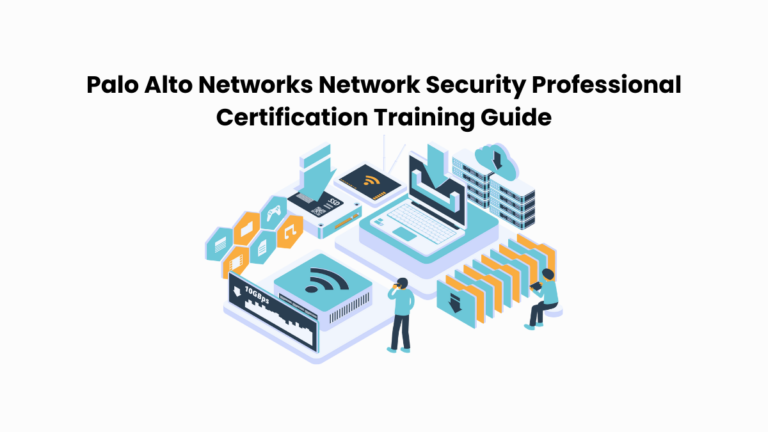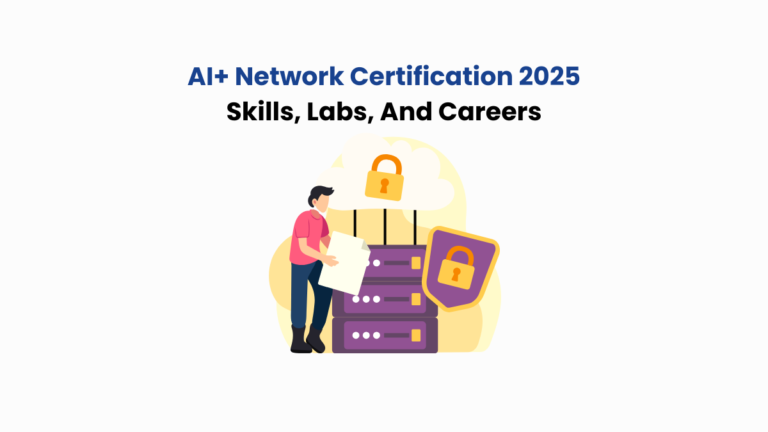If you’re managing FortiAnalyzer daily, you already know the pressure that comes with it. From navigating log floods to troubleshooting device issues, staying on top of security analytics is no small feat. You’re expected to turn raw data into clarity fast and ensure your infrastructure is configured, compliant, and resilient. Yet, without the right training, even experienced professionals can feel like they’re just scratching the surface of what FortiAnalyzer can do.
That’s where the FortiAnalyzer Administrator course comes in. It is built for professionals like you, those who need more than just theory. You need hands-on skills, practical tools, and a deeper understanding of secure, scalable log and report management.
At Datacipher Education Services, we deliver this training as a Fortinet Authorized Partner, combining real-world insight with expert instruction.
In this article, you’ll discover what the course covers, how it builds your skills, how to enroll, and what comes next in your Fortinet journey.
Why Take the FortiAnalyzer Administrator Course?
In today’s complex IT environments, effective log management is crucial. According to a 2023 report, the log management software market is growing rapidly and will reach USD 7753.49 mn by 2033. This underscores the growing importance of proficient log management in maintaining robust cybersecurity frameworks.
The FortiAnalyzer Administrator course is designed to equip IT professionals with the skills necessary to navigate these challenges effectively. Here’s why this course is a valuable investment:
#1. Comprehensive understanding of FortiAnalyzer: Gain in-depth knowledge of FortiAnalyzer’s functionalities, including deployment, configuration, and security features, enabling you to manage and analyze logs efficiently.
#2. Enhanced security posture: Learn to implement secure administrative access and configure network settings, contributing to a more secure and resilient IT infrastructure.
#3. Efficient device management: Master the skills to register and manage devices within the Fortinet Security Fabric, ensuring seamless integration and operation across your network.
#4. Preparation for certification: This course prepares you for the FCP- FortiAnalyzer 7.4 Administrator certification exam, validating your expertise and enhancing your professional credentials.
By completing this course, you’ll be well-equipped to handle the complexities of log management and contribute significantly to your organization’s cybersecurity efforts.
FortiAnalyzer Administrator Course Overview
| Feature | Details |
| Course Duration | 7 hours total (4 hours lecture, 3 hours lab) delivered over one full day or two half days |
| Delivery Format | Instructor-led (online or onsite), or self-paced |
| Course Level | Intermediate |
| Target Audience | Professionals who are responsible for the day-to-day management of FortiAnalyzer devices |
| Prerequisites | Familiarity with all topics in the FCP- FortiGate Administrator course |
| Course Fees | INR 418,640 or USD 5000 |
Target Audience
The FortiAnalyzer Administrator course is intended for professionals who manage the logging and reporting features of Fortinet environments. It is especially valuable for those responsible for operationalizing FortiAnalyzer within the Fortinet Security Fabric.
This course is ideal for:
#1. Network security administrators
#2. Security operations center analysts
#3. Systems engineers working with Fortinet deployments and
#4. IT professionals responsible for log analysis and reporting
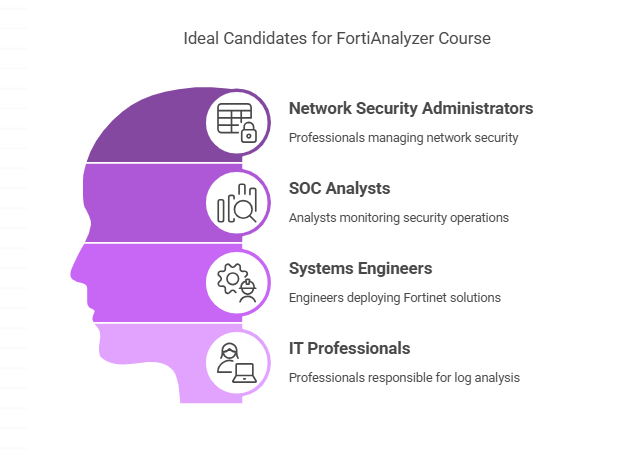
If your role involves configuring, managing, or securing FortiAnalyzer in a production environment, this course is built for you.
Prerequisites
To get the most out of the FortiAnalyzer Administrator course, participants should already be comfortable working within Fortinet environments.
Required knowledge includes:
a. Completion of the FCP- FortiGate Administrator course or equivalent hands-on experience,
b. Understanding of network security fundamentals and
c. Familiarity with the Fortinet Security Fabric and core FortiGate features.
These prerequisites ensure that learners can focus on mastering FortiAnalyzer without being held back by foundational topics.
What does the FortiAnalyzer Administrator Course Entail?
The FortiAnalyzer Administrator 7.4 course is carefully structured to build practical, real-world skills in logging and reporting management. It emphasizes configuration, secure deployment, device management, and high availability. Each module is aligned with Fortinet’s operational best practices and prepares you to manage FortiAnalyzer as a core component of your security infrastructure.
The key modules covered in this course are:
- Introduction and Initial Configuration
- Administration and Management
- RAID and High Availability
- Managing Devices
- Logs and Reports Management
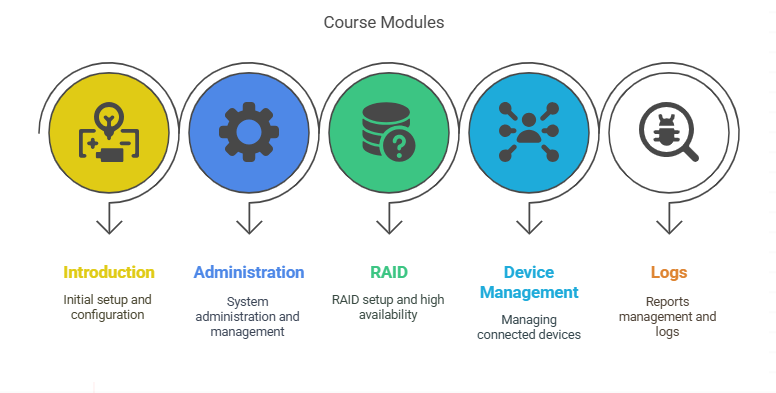
By the end of this course, you will be able to:
a. Deploy and configure FortiAnalyzer securely within a Fortinet Security Fabric environment.
b. Manage administrative domains (ADOMs), disk quotas, and perform system configuration backups.
c. Configure RAID and high availability (HA) for data redundancy and operational continuity.
d. Register and manage Fortinet devices, ensuring accurate log collection and secure communication.
e. Build and manage reports, configure log retention, rollover, redundancy, and encryption policies.
Additional essential outcomes include understanding FortiAnalyzer operating modes, integrating Fabric Connectors, and performing log backups to ensure compliance and resilience.
Next Steps
Your next step is to take the FCP- FortiAnalyzer 7.4 Administrator certification exam, validating your newly acquired skills. You can get the complete exam details here.
From there, you can advance to courses like FortiManager Administrator or FortiSIEM Administrator to broaden your command of centralized security management. These certifications build toward a more comprehensive role in enterprise-level network security. Each step brings you closer to becoming a Fortinet-certified operations expert.
Enrolling in the FortiAnalyzer Administrator Course
The FortiAnalyzer Administrator course is available in flexible formats, making it easy for professionals to train in the way that suits them best. Whether you prefer live instruction or learning at your own pace, getting started is simple.
How to register for the course?
Visit the Fortinet Training Institute: Go to Fortinet Training and search for FortiAnalyzer Administrator in the course catalog.

Source: Fortinet
Choose your preferred format:
- Instructor-led training (ILT): Delivered by certified Fortinet instructors either in person or in a live virtual classroom.
- Self-paced online training: Includes free video resources and optional lab access for flexible, hands-on practice.
Register and confirm your seat: Use the relevant SKU (FT-FAZ-ADM or FT-FAZ-ADM-LAB) and ensure you meet the FortiGate Administrator prerequisite.
Access course materials and labs: Once enrolled, gain access to guided labs, official courseware, and interactive learning tools.
Datacipher Education Services is a Fortinet Authorized Training Partner with a proven track record in network security training. Our certified instructors bring real-world expertise to every session, ensuring learners not only pass certifications but also gain job-ready skills.
To enroll through Datacipher, select us in the Authorized Training Partner (ATP) dropdown during registration, or sign up directly on our course page.
Become a FortiAnalyzer Expert with Datacipher Education Services
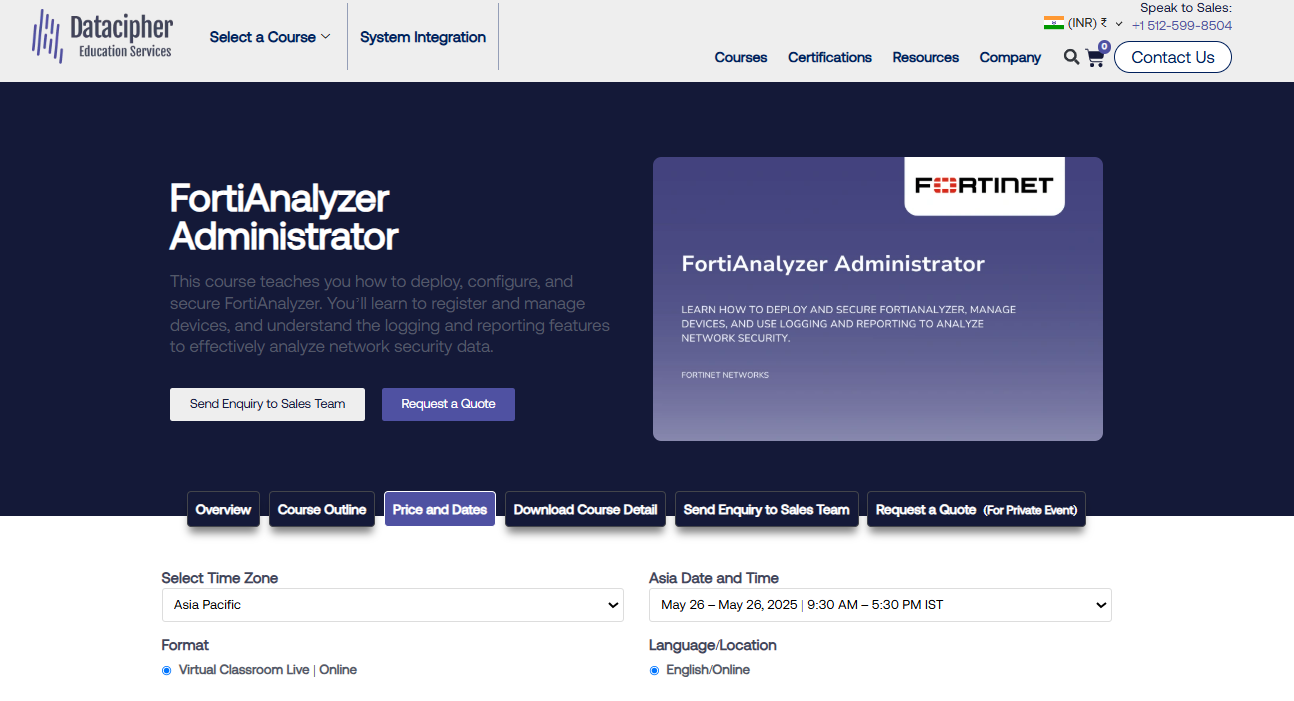
Source: Datacipher
Not all training prepares you for real-world complexity, especially when you’re responsible for log management, compliance reporting, and device integration across a live network. At Datacipher Education, we go beyond the basics. As a Fortinet Global Authorized Training Partner, we deliver immersive, hands-on training designed to build operational expertise.
Professionals from companies like Accenture, Ceridian, NTT, and Becker & Poliakoff have chosen Datacipher to upskill their teams. Why? Because we teach you to manage FortiAnalyzer like it’s already part of your production workflow.
Here’s what you can expect:
- Live sessions led by Fortinet-certified engineers with deep field experience
- Real-world labs designed around FortiAnalyzer 7.4.1 deployment challenges
- One-on-one mentoring and technical support before, during, and after the course
- Flexible schedules tailored to working professionals
- A focus on applying what you learn immediately in your own environment
As one recent trainee put it:
“This course helped me manage logs and reports more confidently. It felt like production-grade training.”
— Srikanth T., Network Security Engineer, Axis Bank
Take the next step in your security career with us. Enroll in this course with Datacipher and turn FortiAnalyzer into a tool of clarity, control, and command.
Frequently Asked Questions
1. How can FortiAnalyzer help streamline SOC operations in large-scale deployments?
FortiAnalyzer centralizes logs from all Fortinet devices, enabling faster correlation and alerting. It reduces manual log analysis time and supports automated incident workflows. Moreover, its role-based access and ADOMs improve visibility across multiple teams. This leads to faster response times and better resource allocation in the SOC.
2. Is experience with FortiAnalyzer essential for transitioning into a threat hunting or incident response role?
Yes. FortiAnalyzer is key for understanding log patterns, anomalies, and threat timelines. Its integration with the Fortinet Security Fabric makes it vital in detection workflows. Threat hunters rely on structured log data to investigate and pivot. Hands-on experience builds the analytical mindset required in IR roles.
3. What real-world use cases can I expect to apply FortiAnalyzer skills to immediately after training?
You’ll configure log retention policies, build compliance reports, and audit traffic flows. Daily use cases include troubleshooting outages using logs and identifying malicious events. You will also be able to manage multi-device log visibility and create scheduled executive reporting. These tasks support security, compliance, and operational monitoring efforts.
4. What’s the strategic difference between FortiManager and FortiAnalyzer in enterprise environments?
FortiAnalyzer focuses on log collection, analysis, and reporting for incident visibility. Whereas FortiManager handles policy deployment, device configuration, and change control at scale. Together, they form the control and visibility layers in the Fortinet ecosystem. Mastering both is key for centralized, compliant, and scalable security operations.
5. Can FortiAnalyzer integrate with external SIEM platforms, and how valuable is that skill in the market?
Yes. FortiAnalyzer can export logs to platforms like Splunk or IBM QRadar via syslog. This skill is critical for hybrid environments with layered analytics needs. It’s especially valued in enterprises using Fortinet alongside other vendor tools, as it demonstrates your ability to bridge platform-specific tools with broader SOC infrastructure.

